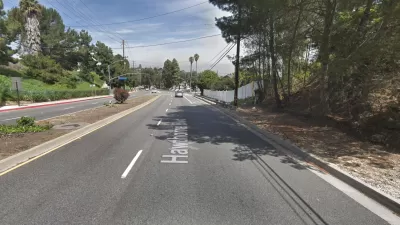The state of Washington is finding that more and more fatal car crashes involve drivers under the influence of THC. But legal limbo, lack of research, and spotty detection makes the question of what to do very hard to answer.
Amelia Havanec reports: "Among those involved in fatal car crashes in Washington, the amount of drivers under the influence of marijuana escalated dramatically between 2013 and 2014, according to a new report by the Washington Traffic Safety Commission (WTSC)." To be more specific, there "was a 48 percent increase in THC-influenced drivers involved in fatal crashes between 2013 to 2014."
Before jumping to conclusions about whether the escalation of pot smokers involved in car crashes, the study also offered an important caveat: "around half of the THC-positive drivers were also under the influence of alcohol, exceeding the state’s limit of a 0.08 blood alcohol content. Furthermore, the majority of the crashes took place in the first six months of the year, before recreational marijuana stores opened."
Havanec helpfully notes that federal prohibitions on the sale and use of the drug, along with a lack of science, make setting, and detecting, driving limits for the use of the marijuana difficult.
In a separate article for Governing, Sarah Beitenbach goes into more detail about the challenges of policing "high driving" in states that have legalized marijuana for recreational use. According to Beitenbach, "[a]t least 17 states, including Washington, have “per se” laws, which make it illegal to have certain levels of THC in one’s body while operating a vehicle, according to the National Conference of State Legislatures (NCSL). Under these laws, no additional evidence is required to prove a driver is impaired."
FULL STORY: Pot increasingly linked to fatal car crashes, state reports

Alabama: Trump Terminates Settlements for Black Communities Harmed By Raw Sewage
Trump deemed the landmark civil rights agreement “illegal DEI and environmental justice policy.”

Study: Maui’s Plan to Convert Vacation Rentals to Long-Term Housing Could Cause Nearly $1 Billion Economic Loss
The plan would reduce visitor accommodation by 25% resulting in 1,900 jobs lost.

Planetizen Federal Action Tracker
A weekly monitor of how Trump’s orders and actions are impacting planners and planning in America.

Waymo Gets Permission to Map SF’s Market Street
If allowed to operate on the traffic-restricted street, Waymo’s autonomous taxis would have a leg up over ride-hailing competitors — and counter the city’s efforts to grow bike and pedestrian on the thoroughfare.

Parklet Symposium Highlights the Success of Shared Spaces
Parklets got a boost during the Covid-19 pandemic, when the concept was translated to outdoor dining programs that offered restaurants a lifeline during the shutdown.

Federal Homelessness Agency Places Entire Staff on Leave
The U.S. Interagency Council on Homelessness is the only federal agency dedicated to preventing and ending homelessness.
Urban Design for Planners 1: Software Tools
This six-course series explores essential urban design concepts using open source software and equips planners with the tools they need to participate fully in the urban design process.
Planning for Universal Design
Learn the tools for implementing Universal Design in planning regulations.
Caltrans
Smith Gee Studio
Institute for Housing and Urban Development Studies (IHS)
City of Grandview
Harvard GSD Executive Education
Toledo-Lucas County Plan Commissions
Salt Lake City
NYU Wagner Graduate School of Public Service




























